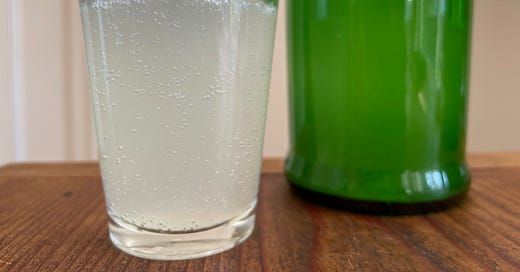This May, PepsiCo, falling in line with other companies (Coca-Cola, Unilever, Nestlé and others), watered down its targets to curb the deluge of plastic pollution it sends out into the world. In the case of reusable bottles, the company has abandoned its goal altogether.
In 2023, PepsiCo packaged its beverages and convenience “foods” with 2.6 million metric tons of plastic. In a single year. And it’s not even the world’s worst plastic polluter. According to Break Free From Plastic, that honor goes to Coca-Cola. PepsiCo ranks up there though—fourth on the list of the biggest plastic polluters.
PepsiCo reneged on several sustainability initiatives, including:
Reusables. The company abandoned its goal to deliver 20 percent of its beverages in reusable packaging by 2030. Reuse, more than any other strategy that PepsiCo pledged (and subsequently rolled back) would cut plastic waste more than anything else.
But throwaway plastic boosts profits. Back in the 1960s and 70s, PepsiCo refilled returnable glass bottles for which customers paid a deposit. Beginning in the late 70s, the beverage industry switched to throwaway plastic bottles, which shifted the onus of cleanup onto municipalities and taxpayers. By outsourcing the cost of picking up after itself, the industry saved money. (Learn more about the death of refillable bottles here.)
Recycled content targets. PepsiCo cut its goal of 50 percent recycled content in its packaging by 2030 to 40 percent by 2035. Packaging food and drinks in recycled plastic was never a great goal to begin with. The recycling process actually increases the toxicity of plastic. Not only that, recycling plants spew microplastics into the environment. The company would make great strides if it focused on reuse.
Virgin plastic reduction. PepsiCo had pledged to reduce its packaging’s virgin plastic content from non-renewable sources (i.e., fossil fuels) by 20 percent. It reduced this target to 2 percent per year until 2030. But even if PepsiCo ramps up its use of bioplastic (plastic made from corn, for example), that still squanders resources and creates a waste problem. By the way, compostable-where-facilities-exist plastic tossed into a recycling bin may contaminate the entire bin.
As explained (admitted?) by Jim Andrews, the company’s chief sustainability officer, PepsiCo relies upon—expects, in fact—society to clean up after it. PepsiCo
is very very dependent on the systems around us changing […] We had anticipated stronger policy support, increased investments, more regulatory action to drive change […] And honestly many of those expected shifts didn’t materialize.
Translation: “Society has doing nothing to curtail our company’s huge mess!”
Well, the systems around us are changing—our life support systems. We now experience more deadly heat, more drought and more extreme weather events.
To be fair to Andrews, we do desperately need regulation to address plastic pollution. Without regulation, any company that does the right thing will face a competitive disadvantage. So instead, every company does the wrong thing.
What can we ordinary citizens do while we wait for regulations?
Boycott these companies and let them know why.
Support organizations that fight plastic pollution, such as Plastic Pollution Coalition, Break Free From Plastic and Beyond Plastics.
Brew your own soda as a small act of rebellion. Taking action—even simply making fizzy drinks at home—helps me retain my sanity. Plus the drinks taste amazing!
Homemade soda is easy to make!
When I broke up with plastic, I started to make more staples from scratch. Often, after making one of these staples, I would ask myself, “How did I not know how to do this already? That was so easy!” (Convenience food manufacturers rely not only on plastic to run their operations and boost their profits but also on the erosion of consumers’ skills—and a lack of time to take care of ourselves.)
The following 3-ingredient, simple recipe, Whey Good Fizzy Lemonade, is one example. If you’re vegan, go here for a fizzy lemonade recipe made with a ginger bug, a type of starter that will ferment (i.e., carbonate) lemonade and many other drinks.
Keep reading with a 7-day free trial
Subscribe to Zero-Waste Chef to keep reading this post and get 7 days of free access to the full post archives.




